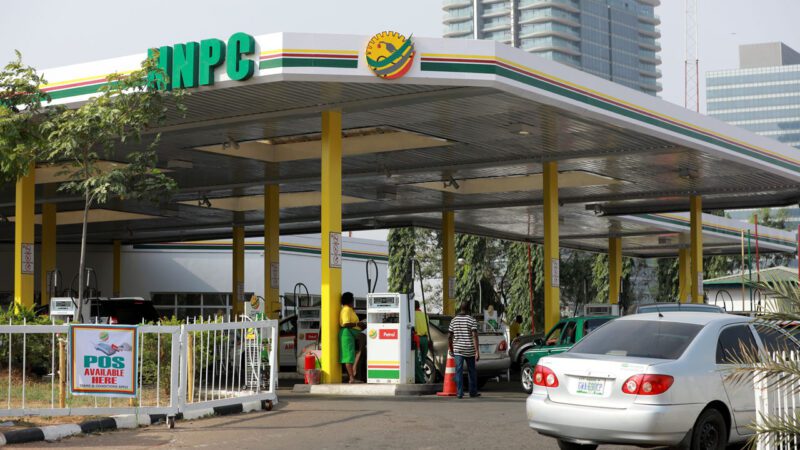National Issues
Subsidy Removal: Implications for Pharma Manufacturing in Nigeria -By Patrick Iwelunmor
The federal government has to be sincere in its resolve to dialogue with the labour unions on mutually-beneficial ways through which subsidy removal can bring about economic growth and development such that every sector, especially the health sector, can witness unprecedented transformation.

The removal of fuel subsidy by the Nigerian government is generating reactions amid the many socio-economic implications that are affecting life and livelihoods in Nigeria. One of the most important sectors that is seriously feeling the effects of that decision is the transportation sector, which has witnessed over 100 percent increase in fares to and from different locations across the country. Nigerian workers who are grappling with the inadequacy of their salaries are already bearing the brunt even when their respective employers are not making any efforts to address the issue.
The pharmaceutical industry, in particular and the health sector in general are also feeling the negative impact of this subsidy removal as it portends very difficult times ahead. For the health sector, access to drugs is being further threatened, as most patients would be unable to get quality medicines at affordable rates. This is coupled with other logistical challenges, especially in communities were the movement of healthcare workers has always been problematic.
With the Nigeria Labour Congress calling for a strike action (which it later called off) many groups including the National Association of Government Medical and Dental Practitioners (NAGGMDP) had also indicated their readiness to join the NLC in the showdown with government. According to a communique issued by NAGGMDP and signed by the national president of the union, SofiriStarson, the decision to remove subsidy was catastrophic and would lead to inflation.
While calling for a revamp of Nigeria’s comatose refineries, NAGGMDP also advised the federal government to set up measures to curb crude oil theft, secure our borders and stop leakages within the oil and gas sector. The union also called on government to strengthen healthcare financing by earmarking at least 15 percent budgetary allocation to the health sector.
Reacting to the development, CEO of Bloom Public Health, Professor ChimezieAnyakora, whose company has been in the forefront of championing self-sufficiency in Nigeria’s local pharma manufacturing, warns that the shock created by the subsidy removal can trigger many problems for the local pharma industry in particular and the health sector in general. He observed that the rising the costs of production, which are inescapable consequences of subsidy removal, could force many pharma manufacturing companies out of business, thereby creating a gap in the supply chain.
The Executive Secretary of the Pharmaceutical Manufacturers’ Group of the Manufacturers’ Association of Nigeria (PMG-MAN), Pharm. Frank Muonemeh also agreed that subsidy removal would affect Nigeria’s clamour for medicine security in many ways. He observed that over 80 percent of pharmaceutical manufacturing activities in Nigeria depend on energy provided by the oil and gas sector and as such, increase in the cost of gas, diesel and premium motor spirit would definitely impact negatively on the cost of operation as well as the purchasing power of citizens. He warned that unless government provides palliatives such as low interest loans, many manufacturers may be forced to close shop – a development that could lead to loss of employment and lack of competitiveness in the local manufacturing sector.
The greater danger, according to Anyakora is that counterfeiters of medical products could exploit the gap in supply to flood the Nigerian pharma market with fake and substandard drugs, to the detriment of the averageNigerian. He also warned that unless government does something to alleviate the huge economic toll its decision will take on Nigerians, many patients would experience a deterioration in their conditions, largely due to their inability to cope with the rising costs of drugs.
For the pharmaceutical landscape in Nigeria, this will perhaps be one of the most trying times in its history. With the prices of petroleum products rising by over 150 percent, pharmaceutical manufacturers are in for difficult times. Before now, the cost of running machinery has been humongous and ceaselessly interfering with the profit margins, growth and expansion projections of most pharmaceutical companies in the country. One can therefore imagine the negative impact the removal of subsidy would have on these companies’ operations.But for the spirit of patriotism and the passion to save lives, many pharmaceutical manufacturers would have been out of business.
The federal government has to be sincere in its resolve to dialogue with the labour unions on mutually-beneficial ways through which subsidy removal can bring about economic growth and development such that every sector, especially the health sector, can witness unprecedented transformation. More importantly, improving Nigeria’s universal health coverage status should be one of the focal points of the gains that are expected to come with subsidy removal.
Patrick Iwelunmor is editor of Pharmanews, Nigeria’s leading health journal










